Da Ladies #8 | Embracing Curiosity: Unschooling as a Path to Authentic Learning
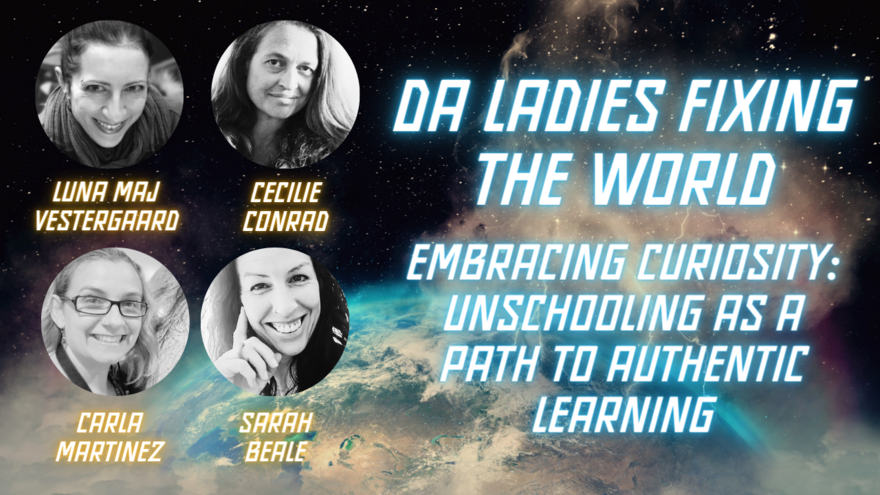
🗓️ Recorded March 30th, 2024. 📍@ The Lovetts, Fresno, California, United States
Click here to embed this episode on your website
Where do you want to listen?
| APPLE |
|
SPOTIFY | |
| YOUTUBE |
|
RUMBLE |
|
| |
POCKET CAST | ||
| CASTBOX | |
PODIO | |
| |
STITCHER | |
SEE ALL |
About this Episode
Watching my children one lazy afternoon, unburdened by timetables and homework, I was struck by their innate curiosity. We embrace and celebrate this very authenticity in our little ones in our latest podcast episode. With my fellow wise women Carla, Sarah, and Luna, we weave a conversation around the unschooling movement—a radical shift from traditional education that nurtures a child’s natural inclination towards learning. We delve into the essence of childhood, free from the assembly line of conventional schooling, where learning rhythms are as unique as each child.
Unschooling isn't just an educational choice but a lifestyle reverberating through family dynamics and community interactions. In this podcast, we illustrate the profound autonomy that unschooling can cultivate. Beyond the freedom from a Monday-to-Friday schedule, unschooling challenges us to realign our perspective on what growth and development truly mean—recognizing the inherent brilliance in every child. We explore the societal implications of this shift, envisioning a future where each learning journey's uniqueness is respected and cherished.
Yet, this path is not without its obstacles. The art of unschooling requires parents to shed layers of ingrained educational paradigms—a process we refer to as 'deschooling'. Our discussion touches on the challenges of navigating family life when traditional parenting scripts are set aside. From redefining 'talking back' to simply 'talking' to the deep bonds formed through natural authority, we share our experiences of reshaping family dynamics. As we wrap up our episode, we leave our listeners contemplating the diversity within the unschooling community, encouraging a future of education crafted through trust, autonomy, and the individual brilliance of each child.
▬ EPISODE LINKS ▬
Luna Maj Vestergaard:
- https://altomunschooling.dk/
- https://www.instagram.com/lunamajvestergaard/
- https://www.facebook.com/lunamajvestergaard
Carla Martinez:
- https://planetaworldschool.com/
- https://www.instagram.com/ligronesenruta/
- https://www.facebook.com/ligronesenruta
Sara Beale:
- https://www.renegademum.com/
- https://www.instagram.com/sarah_l_beale
- https://www.facebook.com/sarah.beale1
Cecilie Conrad:
- https://CecilieConrad.com
- https://www.facebook.com/Ceciliefelumbconrad
- https://www.instagram.com/ceciliefelumbconrad/
Watch the full interview on YouTube
Copy the code below to embed this episode on your website.
<div id="buzzsprout-player-14878750"></div><script src="https://www.buzzsprout.com/2103333/14878750-da-ladies-8-embracing-curiosity-unschooling-as-a-path-to-authentic-learning.js?container_id=buzzsprout-player-14878750&player=small" type="text/javascript" charset="utf-8"></script>
With love

Jesper Conrad
AUTOGENERATED TRANSCRIPT
00:00 - Cecilie Conrad (Host)
So welcome to the Ladies. Fixing the World, episode eight. It's a good project to fix the world, and I'm happy that we are back. It's been a while, all the girls and me. I have with me my usual crew of wise women, kali, where are you now? Are you in Tenerife?
00:19 - Carla Martinez (Co-host)
Not yet still in Sweden.
00:21 - Cecilie Conrad (Host)
Looked more Swedish.
00:23 - Carla Martinez (Co-host)
Almost, almost almost, in Tenerife.
00:27 - Cecilie Conrad (Host)
And I have Sarah Beale with me and you are from Australia, but where are you now?
00:34 - Sarah Beale (Co-host)
In England, in England Still.
00:37 - Cecilie Conrad (Host)
Nomads not moving too much, same here, and Luna from Copenhagen and currently in where Fredericia, so another part of Denmark. Yes, I'm in California, the all-American experience. Yeah, it's more exotic than you would think to be in the US, than I would think I've been surprised. But we're not discussing the United States today. We are discussing unschooling, as always, or we're discussing is it really unschooling? It's more like real life.
01:13
Doesn't have to be the headline and how we fix the world by living a real life. And I know that I hired Sarah to do a formal introduction and prompt on the theme of today. So here you go.
01:29 - Sarah Beale (Co-host)
Okay, I'll do my best. So I guess one of the key themes for all of us the four of us, and also the sorts of things that people ask us about, talk to us about, you know, if we were to loosely categorise the sections, there's a lot of conversation always about how children actually are compared to how we've been told they are, how they are in school, how kids are in a completely contrived, constructed, false environment. Which school is. Even if you think it's amazing, you would have to agree, surely, that it's a complete construct and it's not much. The kids in that environment are not how kids really are and we have the benefit of seeing this all the time, every day. So I think we get used to how kids really are and we have the benefit of seeing this all the time every day. So I think we get used to how kids really are.
02:29
But the sorts of questions I get from parents are usually really about that. It's usually like, oh, my kid's doing this thing and I don't really understand it and I'm like, yeah, that's actually normal, that's what kids do and it's just maybe not what you've seen before, because you've only seen kids in a schooled environment and even ex-experts child psychologists and neurologists and teachers and professors. They don't see kids in a natural, normal environment. They only see them in a constructed environment. So I think it will be helpful for parents. I enjoy to talk about it too, because we all spend a lot of time observing our children and other people's children, right? So I think we've got a fair idea of how children actually can be how they naturally are. So I think it will be helpful for people to dissect it a little bit.
03:24 - Cecilie Conrad (Host)
Yeah, and it's interesting how it really unfolds differently from what you expect and if you do the introspection of thinking about why did I even expect that yeah that's.
03:38
That's an interesting journey to do as a parent even, I mean, even if you're not unschooling, even if you have your kids in school, things might unfold in a very different way than what you were expecting and thinking about. Why did I expect that? When did that become the truth? Um, that has been an interesting journey for me, at the very least so. But I also I have a little.
04:05
I don't think we can go so far as to say we know how children really are, because then we have to discuss what's real and what would be without culture. Unschooling is just another culture inside a larger conglomerate of cultures. It would look differently if there were more unschoolers around. It would look differently if there were more unschoolers around. It would look differently if we had less resources or more resources. So I just want to put that disclaimer in before I start talking, that I don't think I know anything about some core human nature that we can talk about extracted from culture, because I don't think that exists. But I do think that a free spirit, a free child without the constraints of of the schooling system, will be a more real child, true to him or herself and true to something we might go as far as to call no, not normal, natural.
05:07 - Sarah Beale (Co-host)
Yeah, that's my little headline yeah, really yeah, and I think too uh, I mean, this is certainly a comment or a challenge that is issued to me often, because I talk a lot about digital technology, because my kids love digital technology um, that's not natural. So you know, there's a lot of things in our world um, the way we live, the way our societies have developed, um, arguably not in a natural, evolutionary way. That's a whole separate conversation. So, yeah, I mean, we can't necessarily surmise that our children are completely natural, um, so I think we are. That caveat that you're talking about is is like um as as true to themselves as we can, as we can give them opportunity to be, yeah, and also let's just have this conversation honoring that our lives basically are living laboratories.
06:01 - Cecilie Conrad (Host)
Laboratories I don't know how to pronounce that word correctly on what continent? But, yeah, okay, how does it resonate with you, kali?
06:15 - Carla Martinez (Co-host)
I think that it's not that none of us know how the the kids are real, how they are, because it depends on the kids and the thing is that what we are giving them and us is the space to be what you say, without this constraint. You have to be like this, you have to go to this place, you have to do this. So they have this space and we have this, uh, also this. Look just to this. Uh. We also give us the space and the time to observe and question, questioning us how we feel about the things, because maybe the parents go to you, sarah, or to any of us, and say my kid is doing this, and maybe we also ask ourselves these questions when our kids do whatever and it's like what are they doing this? But it's not that I'm worried because I have to ask someone. No, we just maybe observe or maybe wait or maybe ask someone, like the three of you like did your kid did something like this? Just to have reference, but reference for from someone that is similar, that have similar life from me. So these are my references.
07:49
I always say that, like I don't in in what it has to do with parenting, I don't really listen to the experts, because there is no recipe for the whole families and kids and we are the expert in our kids. We know that we are the best. Every mother is the person who know best their kids. So I just need other families similar to mine and listen to them and then observe my kids and then observe my family. So this is where I'm. What we give them is time and space. So they come, just I don't know, be and try, and then we also are there also to say, okay, maybe this is a bit dangerous, I don't know. Also, it's not that they you know we leave them alone, that you know that that's like irresponsibility or something we have talked about that also other times.
09:10 - Cecilie Conrad (Host)
This is what I see, like they have the space yeah, you're right and, and I think, within that, more free space. Maybe we can make some observations that cannot be made, looking at children who grow up being told what to do all the time yeah, they have like to to fulfill some expectations.
09:38 - Carla Martinez (Co-host)
I think our kids, maybe they have less of that. There's maybe always something because we're in a society and they see things, but maybe they have less hopefully on that, and I think that's true because then they come up with things and it's like what the hell you know? So maybe, uh, you can see that from other kids, that how, maybe they are more, a bit more shy on saying some things when they are not sure the people they are talking to, like they have to calibrate sometimes. So maybe I'm not allowed, or maybe this is not correct, or maybe I don't know.
10:28
So this is a specific difference that you observe between your children who are unschooled and other children you meet that your children speak their mind some I, some yes, and what I have seen more, I think think is the kids, when they do something, expecting a specific response from the adult, like yeah, you're right, or yeah, that was what it was expecting for you to do it, you know, waiting this kind of answer. So they're playing their part. Is that basically it? You're not waiting this kind of answer, they're playing their part.
11:07 - Cecilie Conrad (Host)
Is that basically what you're saying, that they know what they are expected to say and do and therefore they also expect a specific outcome?
11:15 - Sarah Beale (Co-host)
but your mind, I've seen that okay yeah yep yeah, no, I know what you mean, carla almost, uh, very more performative than in general. Unschooled kids like perhaps they are living to these external expectations which can then become like a performance um, for which there will ultimately be some kind of reward. And actually one of the key things that I've noticed about I would say, without exception, all unschooled kids that I've met they're not looking for a reward from the external world and therefore they're not looking for a prescribed response from the grown-ups around them. They're self-driven, self-directed, which doesn't mean that they won't sometimes seek some kind of feedback or like oh, what do you think about this, or can you help me with that? Or I want to workshop an idea or whatever, but not for the reward, not for an external reward. It's like, yeah, they'll just say something, try something, do the thing that they want to do, not because they're trying to impress anyone.
12:38 - Cecilie Conrad (Host)
It's one of the really big things I think I see with the mainstream life of children that they grow up in a context of always being told whether what they just did was right or wrong, good or bad and how good or how bad. We have a measuring system installed in the school system, uh, which we call grades, but but there's this praise or or the the opposite going on with with a lot of interactions happening around children, and I see it as one of the largest chunks of freedom they get from not growing up with. That is that they learn by living their life those 15, 20 years without that system, having to realize themselves whether they think what they did was right or wrong, good or bad, installing that system within yourself. And I think I see a big crisis happening in people's lives once they're out and for some people it's it's after university or college, it's when you're in your mid or or even mid-20s or even 30 years old. Maybe you already start to have children and mortgages and stuff and then you realize, oh, wait, a minute, now it's my problem to figure out what's right and wrong and what I want, and whether what I want is great or not and all these things.
14:15
So that little chunk of freedom is not a little chunk of freedom, it's. It's the defining, I think the defining difference between the young person who has been unschooled and the young person who just took the main road. So you develop someone who doesn't have to have a life crisis, basically someone who knows who they are and what they want and why and how to handle it if it goes wrong. If you choose something that you don't like and you go to bed at night and you feel like a word I shouldn't say, then you know it's your own fault and you have to do something about it. And you learn that maybe when you're five instead of 32, which you know can spare you a divorce and wrong career choice and other stupid things that might happen I feel like I want you, luna, to talk, just so we have the whole well, believe it or not, I don't really feel like I have anything to add right now.
15:28
I don't believe you, I think. I think, luna, that you've just been living this for so long that you cannot even observe those differences anymore, because you don't think about them anymore no, it's true, you do actually stop thinking about it at some point, and probably that is the hardest part about it all is like unschooling in this life in general.
15:50 - Luna Maj Vestergaard (Co-host)
Probably that is the hardest part is how to explain that you just stop like, you just stop thinking, you stop looking for learning, for instance, because you stop thinking, you just know it's there and you, just, you stop thinking so much, know it's there and you, just, you stop thinking so much about all these things at some point, of course. But yeah, but while you were, you were talking, I was looking up stuff, um, because all sorts of things come to mind, and I thought I just wanted to share a quote which I'm sure we all know, but maybe those who are listening haven't heard it yet and it goes like this it says collecting data on human learning based on children's behavior in school is like collecting data on killer whales based on their behavior at SeaWorld. And that quote is from Carol Black, who's she's a long time on school as well um, she's written tons of stuff about it and you can look her up. But, um, I just, I, I think it's just, it just says it all doesn't it like?
16:52
It's like how, because we look at children like we started by and they're in this completely artificial construct that a school is. And then we look at that and then we think, oh, this or that about children. But you just can't compare the two. You just can't compare it when they're outside and they don't have this, like they don't have all these, yeah. But, like I said, there's really not much to add because I'm really just repeating what you guys have already been saying. But you know, I just I really love this quote because I just think it really captures the whole sort of essence.
17:41 - Sarah Beale (Co-host)
Yeah.
17:43 - Cecilie Conrad (Host)
Of it all like yeah so we just end the episode now, that's it.
17:49 - Carla Martinez (Co-host)
I can, I can share, I can share something that I have. Please do, because it's it's always something, yeah, that can represent this like freedom. Yeah, it's not. Yes, they have. The other day I asked the kids because some question parents have about unschooling and the last question I asked them what do you like most about your life? And Roberto always says time. I have all the time to do what I want.
18:25
So, because they can choose what to do every day, since I don't know when, but okay, roberto is 11, but maybe half of his life, he, he realized because they have been in some alternative projects till five-year-old Roberto, and then they have been in some summer activities or whatever. But he know that he can't be going to the same place like five days in a row, like everybody, from monday to friday. He just can't because he, he has migraña I don't know it's in english how it's pronounced migraines, um, so he just can't. He know himself. Or every time we have something that is very, it can be stressful, or even if it's emotional and it's good but it gets you to be like on, or I don't know, high in emotion or whatever. He knows he maybe will have this. Uh, yeah, because it's his body. So every time we are going to design activities, because we are going to every someplace, he he knows he have he will choose maybe a tuesday and thursday or monday and wed, but he will never choose Monday to Friday, the full morning. But Greta does, because Greta is super power, and he goes like Monday, friday, whatever, every hour.
20:13
You know, and he knows about him and he's confident and he said no, I will go this and this, and maybe the days in between I could do whatever. So and he's only 11 and maybe he knows this since he was six or so he has this space also and also we were there like listening, or even speaking these words from before to him so he can understand like, oh, maybe I should choose, or maybe we could go only three days instead of five. So now he and he, yes, also can listen to his body and say no today, no, and we listen to him because we know he knows his body, so that, okay, today is not the day, or I don't know but, carla, there's something really important, though, here that you're sort of lifting the lid to like, because that something that has to go with what.
21:25 - Luna Maj Vestergaard (Co-host)
What you just said is that because you don't have the expectation or the goal that he should learn to be in a certain way or to fit in in a certain way, that oh, but, but this is how we live in our culture and in our world. You should be able to go monday to friday and do this, do it like that, etc. Etc. So you can allow him to do something else because you have worked, or maybe you have like not you, you, but the parent either never had that belief or has worked away from it. Like that's super important, because because if you still had the belief, like, he would still know. But if you had the belief that he, he should be learning something else, I mean it would just look completely different.
22:12
Right, I know, because you'd be like pushing him or trying they're working yeah, you know, or call him all sorts of labels to explain why he couldn't, and then I'm not going to go any further down that road. But that's not for today.
22:29 - Sarah Beale (Co-host)
No, but, but that's the truth, though I mean it's yeah, yeah and that that really, like you know, we, cecile, called this series, you know, the lady's's Fixing the World, and that's not a joke. I mean, we're not arrogant. Obviously we know we're not going to fix everything, but we're working on it.
22:53
But we have. The foundational belief that sits at the core of these conversations is that we truly believe that through building strong families, we can impact our communities in a positive way and fix the world. That's what we believe, and we're doing that through living a self-directed, unschooling life. And and this isn't about saying our children are better than kids that go to school or we're better than the parents that send their kids to school at all, but it is about saying, if this is the life that you're choosing, you are going to notice some differences in your kids compared to children in school, and it's important that parents understand those differences so they can support their children and facilitate their learning, because that's our job and one of the big, big, big things the elephant the elephant in the room, if you like around kids in school now, and I mean I talk to a lot of parents whose kids are still in school and I talk to kids who are still in school and they tell me they are stressed out, they are in pain, they are not happy, they are overwhelmed parents and kids, they are struggling to cope with the demands of school, the pressures of their peer group, keeping up with people on every level, and they're actually suffering. So what we're talking about really is the antidote to that, which is helping kids thrive by knowing themselves and knowing they don't want to go five days a week to something. They don't need to push themselves, they know when to say no, they know how to listen to their bodies and they're supported by parents who also listen, and our children don't have those same worries like I was.
24:38
Peggy was telling me the other day we were getting ready for bed and she was like oh my God, oh, I forgot to ask Violet if I could borrow her concealer, and now she's gone out. That's makeup. And I'm like is that your biggest concern right now? Is that the main? And she's like yeah, I'm like.
24:57 - Cecilie Conrad (Host)
And you just know you've got a good job. I don't know about that in bed at night.
25:00 - Sarah Beale (Co-host)
Is that the thing? I was like, have you got any other worries? And she's like no, but like that's why I'm being glib. But like the point is, there isn't any like big, and not that things don't come up that are hard right, all of us have things that come up sometimes that we've got to navigate, but they're not things, generally speaking, that are like shaking our children to their core the details of life. Where are we going? What are we doing this year? Where are we going to live?
25:36
Like one kid wants to do a course, so you've got to do that. Or one kid wants a book that you've got to order. Or one kid, I don't know some little detail that you've got to do that. Or one kid wants a book that you've got to order. Or one kid, I don't know some some little detail that you've got to fix. That you've got to fix that. We navigate right, but they're in general, they know themselves and the settledness that you get as a human who knows yourself and knows where you can go for support is almost incomparable to what children in school experience and I don't really feel like we need to sugarcoat what goes on in school because there is some bad stuff that goes on in school horrible things that I hear about that kids have to navigate in school. It's not really. No, it's not, and I don't really care to preserve anyone's feelings over that, because that's not what we're here for. We're here to speak some truth.
26:29 - Luna Maj Vestergaard (Co-host)
Right, there's nasty stuff that goes on but it's also interesting to think like what when, someday, you know a beautiful day when that's going to happen, um, and you'll have had x amount of people, like generations that have grown up in freedom, how is the world going to look when you will have had sufficiently like enough people who have grown up? This, because this is growing right, more and more people are like stepping out of you know this experimental way of living which we have been living in our kind of society for a few hundred years, and more and more people are stepping out of it, and not just schooling, but the whole society is schooled anyway. Like is that? How do you say her name? Lucy, aitken, reed, red? How do you say her name? Lucy? It can read, read what. How do you? How do you say her name? Great, oh, her, like she calls. She speaks about the school fixated society, right, which is lucy in new zealand.
27:37
Yeah, that's lucy who you had on your podcast, so I was looking at you to say her name. Yeah, she's really great.
27:43 - Cecilie Conrad (Host)
No, but I can't remember. I'm overwhelmed by this conversation.
27:47 - Luna Maj Vestergaard (Co-host)
You're so great again yeah, but there was a hummingbird coming.
27:50 - Cecilie Conrad (Host)
I saw that, but besides that, there's nothing outside of this yeah, anyway, I mean that's, that's it.
27:56 - Luna Maj Vestergaard (Co-host)
Like it's it's not just kids in school, it's the entire society. That's like just it's pervaded by this idea of school. And in you know how I mean how in in his book de-schooling society, like how ilig talks about you know how, how you get, uh, intellectually, like dependent on other people, like the dependency that you create via the school, which is what you people started talking about. You started out talking about this, the three of you about how the children's time is taken from them and they're told what to do, how and when, and they're told if it's good or not, or how good or how not good, and they're told if it's good or not, or how good or how not good, all that. So you are creating these people that are dependent on non-external validation, on external opinions on things, and that's why then you spend a lot of time then working with parents to de-school themselves.
29:02
Once you start noticing, oh, I want to do something else, and then it's just freaking hard because, oh, I know that I want to do something else, I know that I want to give this freedom to my child. I know I want to let them do this. You know, read whenever they want to learn to read or blah, blah, blah, whatever. But it's just really hard in the nitty-gritty details of the everyday life. It's very hard for most of us when we start out because we weren't raised like that. We didn't. We had all this schooled mindset. Well yeah, like schooled into us, like brainwashed into us, and getting out of it is really hard.
29:43 - Cecilie Conrad (Host)
So I just spoke to um gordon neufeld for the other podcast that I'm doing and he said it's simple but it's not easy. Yeah, that's the thing, it's a. It's a short way to put it. Yeah, it is simple, but walking it is not easy, because we have to deconstruct everything we see and everything we feel and and the question everything. It sounds like you know you can put it on a banner and look all cool, but questioning everything can be very confusing and hard to do for the actual person who has to question everything, because nothing makes sense at this point. So so that walk is a complicated one. I remember one.
30:33
One thing I could call a starting point for my deconstruction of the idea of the child was when I was studying at University of Copenhagen. I was studying psychology. I must have been something like 20 years old and now starts the course of developmental psychology. So I'm supposed to learn the history of developmental psychology and where it is today, and I'm all excited. And the first thing the professor says is we don't talk about children outside of institutions because such children do not exist. I do not want to hear one word about that. It's not relevant. We're psychologists, we're working in the real world and in the real world. All children are in institutions, period full stop and I almost, you know, handed in my, my, my student card. What is this? It was so crazy. It was so, but I, I stayed, I did complete the education, but it was so crazy. And I think that's what we're up against as society, even of academics, even of a lot of the thinkers, trying to think about where will this world go and how can we fix the things that we want to fix. They think inside the box. They know the box is there but we're not discussing the box and that makes it very, very hard to talk about what and I'm in deep water here but what I would call real. And I would like to propose maybe we go into some very concrete examples that I think we all have from our life with children outside that system, that I think we all have from our life with children outside that system.
32:23
One I find easy to talk about is how everybody always said my children were so good at speaking From a very young age. They would speak long sentences, they would pronounce word in the right way, they would talk you. You know like people talk. They wouldn't talk this baby nonsense language. My children hardly ever did that.
32:51
Some of them took some steps toward pronouncing everything perfectly, but, but they would just talk, and one of the things I noticed is that we consider it normal that children, when when they are two, three, four years old, they speak this weird language that is hard to understand, with all sorts of grammar mistakes, and well, they sound like small children. You can hear it and parents talk to them like this and it's a funny voice, how little. But it's really annoying from the other side as well. But how will children learn to speak when everybody talks like to them, like as if they were mickey mouse himself and everyone? They talk with, their friends, the people who have actually time to talk to them, with them in kindergarten and nursery?
33:43
They also cannot speak because they never talked to anyone who would speak a normal language with them. So this is one thing I thought about before we started recording because of Sarah's prompt about you know how does it look differently? This is one thing that really looked differently in all of my four children. They just started talking and they sounded like reasonable, normal people from the beginning and I was hoping maybe you girls had I think maybe the listeners would like, also some of them, more hands on.
34:28
We digress, as they call that that, to very high philosophy, very fast and sometimes I think. But it's relevant and I love it. But also I just think these examples of how it looks, how different it looks different in the way that you can be not even one year old and speak a full sentence. You can be three years old and have a conversation, a real one.
34:47 - Sarah Beale (Co-host)
Yeah, that that looks different from a child in institutionalized life yeah, I know, I think too I've got so many examples, yeah, and some of the examples are probably stories that I've stored because they were quite pivotal to my journey into unschooling, because actually the reason that that, the reason that anyone decides that they can do this, is because in some way we've seen evidence that we can do it before we've actually done it right and and so the stories that I've got, similar to yours, cecile, and my kids were exactly the same. I just assumed it was genetic brilliance, but you know, maybe it was something.
35:30 - Cecilie Conrad (Host)
I did so my first child. I thought she must be a genius. But then you know, number two, genius again, and then number three. You're like, you start questioning.
35:40 - Sarah Beale (Co-host)
They're just the new normal. They're not geniuses, they're just the new normal. They're not geniuses, they're just the new normal, but everybody's a genius that's the thing, do you not?
35:48 - Luna Maj Vestergaard (Co-host)
know this book called doming us down right yeah that's the book. Someone wrote a book with that title, like about school. So yeah, yeah, no, I totally agree.
35:58 - Sarah Beale (Co-host)
I completely agree and you know, coming back to observation again and time, we've got time to observe our children and one of the things that I notice and I know you guys do too about all of our children is their unique genius and they're all brilliant and all children are brilliant and I hate this idea in the school system that some children are seen as more brilliant than others and given special words for that. I really fucking hate it and I notice brilliance in all of them and because we've got time to notice it, so our children have given us time and we've given our children time. It's this beautiful reverse gift, isn't it? Like we've gone off topic, I know sorry, but like we are able to give them time and because we're not rushing them, they're all. We also have more time, so we've all got time to just sit around and think about this stuff which is brilliant. Um, one of the really early examples that I've got so many and I will I'll not to steal all the time, but like a couple of examples I've got, prompted by Cecile is when my first child it was really my first child, I mean, I only had one child for a couple of years, so in that two years I noticed so many things that she was doing that were not like what people said kids would be doing, and I also knew that my child wasn't special. I already I did know that I knew she wasn't any more brilliant than any other children because my my upbringing learning the bible, let me know. You know the bible says everyone's got unique gifts, right. So I was taught. I was taught that as a child, everyone has unique gifts. No one's more special than anyone else. So I naturally assumed then that my first child actually wasn't any more brilliant than anyone else. So when she started doing things that other people were saying kids don't do, I did naturally assume that everybody else was actually wrong about children. And then I started. So that was really the first like. That was my prompt. You know, oh, something's not right here in what we're being told about children. And then I started. So that was really the first like. That was. That was my prompt. You know, oh, something's not right here in what we're being told about children, because it can't be true that my two-year-olds are complete genius. That actually the like. That's not true. So that naturally means that all children are actually brilliant. If you extrapolate that out. It means that they're all born brilliant, they're all born with the tools that they need and all we've got to do is create the environment. And I noticed that when she was.
38:26
You know, when you go into a um, you know when you go speaking of of the school, obsessed society or whatever the term was that you used the school, the school system, kind of pervades everything. You know, when you go into like a big kind of variety store, right, and we've got've got like in the US and Australia, we've got like Target, and you know they've got other stores in different countries where you go in and you buy like craft packs for kids. It will be like a plastic bag or something and there will be like a pre-cut set of things in the craft pack with a bit of a like picture of what you're supposed to make from this craft pack, because kids couldn't come up with their own freaking craft ideas, right, so they've got to have a pre-cut. You know they've got to have all the foam already cut and they've got to have the sticks the right length and they've got to have the little recipe of what you have to make. I mean, I had a lot of these because, um, I naturally assumed that kids would love to do craft and we collected these kits and I remember excitedly one day getting one of them out and saying to Violet so she was probably around too she was like old enough to be dexterous to make things right.
39:32
And I'm like, oh, we'll make this thing out of paddle pop sticks, right, you know the little pre-cut lolly like ice lolly sticks? Yeah, in Australia we call them paddle pop sticks. And I had this idea and we're going to follow this, this recipe, to make a plane or something I don't know. And she's like, yeah, I'm not making that, like I'm not going to make that, I'm just going to be doing my own thing. And in that moment, oh my god, I can't believe she would want to make some boring two-dimensional idea that was not her own and all the pieces were already cut out, everything was prescripted. Who would? Who would want to do that?
40:10 - Cecilie Conrad (Host)
well, according to our society, everyone, because that box is exactly what, the box that we put our kids into from the very beginning yeah everything is cut out, everything is pre-planned, everything is ready for them to do in a specific way.
40:27
You can do it right in one way, you can excel, do it extra right, but there is no room for anything. And no wonder they become stupid. I'm sorry, did I say that? No, but I mean no wonder the light doesn't shine, no wonder the genius doesn't come out? Because they all, of course, we all are born with our special reason to be here, our special gifts and special combination of talents that that can become something amazing.
41:07
But if we tell people to do only one thing and not fool around and figure out who we are so that we can work with what we really are and really can do, well, when, when is that time coming back to figure that out? When you're 32 and you have a child on your hip and yoga classes and jobs and mortgages and two cars and an upcoming divorce. It's not the right time in life. So it's a beautiful picture of what it is we're doing to them and the problem is that many mothers would have said, no, we're building that plane now because you need to learn to follow instructions and I paid money for this and now I we have one hour and 10 minutes before I'm cooking dinner and we're making that plane, and now I'll teach you how to do it.
42:01 - Luna Maj Vestergaard (Co-host)
That's unfortunately what happens can I throw in another quote? Oh, yes, okay you're ready, you have nothing to say yourself anymore.
42:15 - Cecilie Conrad (Host)
You just have a little app. When will you share it for the rest of us, so we don't have to think anymore?
42:23 - Luna Maj Vestergaard (Co-host)
It's just that I just I get reminded.
42:25 - Cecilie Conrad (Host)
I love you.
42:26 - Luna Maj Vestergaard (Co-host)
Juna, when you say all these like really beautiful things. So here goes Everybody is a genius, but if you judge a fish by its ability to climb a tree, it will live its whole life believing that it is stupid.
42:41 - Cecilie Conrad (Host)
Yes, that was Albert Einstein, that was Mr Einstein himself.
42:45 - Luna Maj Vestergaard (Co-host)
And it's just like I mean, isn't this what we've just been saying? Everybody is a genius and the box is there. So society decided, oh, but you know, the real genius is climbing a tree. That's really good, so that's what we should all be doing, building airplanes from popsicle sticks or whatever, I don't know. It's like, yeah, there you have it.
43:09
And the mom was going to insist on doing that. Uh, and I might have been that mom at some point. I mean, maybe could even possibly, hypothetically speaking, I might have been somebody. I mean it because that's what we, that's what we would. She was taught the same thing, so that's that's the thing. She. This is so ingrained that of course this is how we do it. Of course, I mean you, you serve this thing and it's supposed. It's like climbing the wrong way up the freaking slide, right. So, luckily, when I observe the younger generation now of parents, I mean honestly, more and more people are letting their kids run up the slide honestly than just 15 years ago. Really, today, so many more people are doing it and that's great. But that was such a classic example in earlier times as well that, oh, you don't do that because a slide is for going down, right, that's you know.
44:12 - Sarah Beale (Co-host)
Someone decided that's what it's for, and yeah I think carla was to say something Sorry, wee, you talk Well. It just brings to mind another observation that I've made over a long time and again I noticed this when my kids were very small about a kid's ability to self-organise. So when parents are at the playground and a child climbs up the slide and a parent interferes and says, don't do that, or tries to control how it works, uh, often chaos ensues and people get upset and whatever. But when kids are actually allowed to just sort that stuff out themselves, before long a group of children will have organised how some kids can go up and some kids who don't want to can go down, and they can do that very well by themselves.
45:08
Which is also something that people, I think, don't realise about children how the aptitude and the mastery they have in terms of self organisation and organisation in a group without adult interference, actually it's better when they don't have adult interference. In a group without adult interference, actually it's better when they don't have adult interference. And that's not only a key difference between unschooled kids, I would say, and schooled kids, but one of those very early observations I made. Like huh, kids actually don't need as much help with this stuff as what we're told, and when you realise that too, then you realise the enormous power of self-directed learning as compared to the school system, where they must be taught everything.
45:49 - Luna Maj Vestergaard (Co-host)
But again, once again, only because you don't have the expectation of a specific way things need to be done or a specific goal. Because if you want the group of children to do the things in a specific way, then yes, they do need a lot of adult intervention because otherwise they might do something completely different. So if that's but that's why people say kids can't self-regulate, they can't this or that, of course they can, but it might not look the way you want it to look and that's kind of the central problem.
46:26 - Cecilie Conrad (Host)
But the problem is that if self-regulation has to have a specific outcome yes, that's the thing Then you're looking at the children, waiting for them to come up with the solution you have in your mind, and if we're not open for the children to come up with another solution, I think it's actually fair enough to be honest about it and just tell them you know, this playground in this country could be germany. There's signs with rules of how to play. Literally there are. Have you been there? It's scary.
46:57
Um, if for some reason, it's not the time and place to self-regulate, if for some reason in this country you just have to keep your clothes on, people will freak out if you take them off. Don't do it. Then I think we can just own it and tell our children these are the rules here. This is how it has to look here. It's not the truth about everything. Look here, it's not the truth about everything.
47:31
I think sometimes parents can confuse what is needed in the specific moment with something being a general truth, and I think we have the problem coming from both sides. I almost say as if it's a war, but I see some of the free parents leaving be whatever, always, in any situation, and that's not doing the course any good, because sometimes it's actually all good and fine to regulate a little bit, to say the word stop or, to you know, interfere. There can be good reasons to do that, and I also see a lot of parents going on the mainstream telling children how to do things from the point of view that this is how they are supposed to be done. This is the truth, this is I'm now teaching you the reality of things, and both ideas are wrong ideas in my point of view from my point of view yes that's the whole.
48:32 - Luna Maj Vestergaard (Co-host)
You're completely right. That's the whole de-schooling process is learning to find that balance between because because most, like most parents, come from the the mainstream idea and the adult-centered or adult-controlled version of things, and then it's like flipping a switch, they go to the child-centered, child-controlled version of things Because we don't know what's in between, because no one has shown us that. So to me, that's the whole de-schooling process. It's finding that spot in between. Was that you, sarah, the other day, posting something about in between the raw chocolate, organic egg stuff and then whatever something? But that's the thing, it's the whole. But it's learning to do that. And then we're back to the whole schooled mindset again, because when you haven't been given the freedom to know who you are and make your own decisions and you know, learn right from wrong and learn you know what do that, then it's freaking hard to let your kids do that, because you need to work all that out first for yourself. You need to de-school your mind. So to me, that's the de-schooling process, right there. It's finding that spot spot.
50:07 - Cecilie Conrad (Host)
I don't think we talked a lot about how those kids look. It doesn't matter. It's like every conversation we have on this podcast how we're fixing the world. We think we're talking about something and then we very often very quickly start talking about something else but, cecile, this is because how they look different, all of them we cannot say how they look.
50:35
I mean it's like you're right, you're right, I'm just. I'm looking at the time I promised we'd do an hour and and we're getting close and maybe we should just give up and talking about how they look, because they, as you say, they look different and what's interesting is what options they have and how they carry themselves through life and how the parents around them handle this, this other thing, this thing outside of that box. And maybe also can I throw something in here just at the last moments. Something that interests me very much at the moment is how can we talk to? It's very easy to speak, preach for the choir, right, but how can we help those who are not yet unschooling, those who are still, for some reason, part of that system?
51:31
I think a lot of the things we talked about today applies whether you have your child in school or not. About today applies whether you have your child in school or not. You can flip that idea around about is this real? Does it have to be this way? Do we need all that judgment on everything? So can this perspective can? Can you de-school?
51:56 - Carla Martinez (Co-host)
it doesn't make sense to de-school yourself if you still have your kids in school yes, you know, because I have always sometimes a bit of conflict here, like in what you were uh talking about before, like when the kids starting to talk and they were supposed to talk at this time, or whatever you know, in the matter of parenting not like formal education at school, but parenting I think I've been free from the beginning because I don't know my parents give me that, apart from the schooling thing, but in our relationship with my parents I had that. What I'm giving to my kids in this topic, in this branch, I had it already. So in this part it was kind of easy for me. I didn't have any expectation that I have to accomplish. When were my, when my kids were born, I had to learn when I met other mothers, that they were, like you know, following some kind of steps, like with the, for example. I didn't know that, at least in my surroundings, surrounding almost all the grandmothers give like milk, how do you call it? Not the breast milk, the other milk, the artificial milk? Yeah, formula, just in case. So every new mom have formula at home from the beginning, just in case, so so they will use it, because you always have a crisis. So I didn't have this home because so. So I didn't have this home because my mom wasn't there either. So, for this is an example.
54:07
But like this, like many others, like I don't know, I don't have this. They are supposed to be walking right by now. They are supposed to have their teeth already. They're supposed to. I don't care if it's someone tell me something. I was also kind of it's like I, I trust my um instinct, like it is fine, I, I think I'm, I have this sense to see if something is not right. So, and then, okay, this is when they are baby. And then they grow and they start to walk, talk and whatever. And they actually went to kindergarten, and I have said that before.
54:46
And then I wanted to say another story about this and related to the 3D plane that you wanted to say to that you said before, sarah, because in the kindergarten sometimes they say you, you go, they bring this home and you have to do whatever, and they, okay, have this paper and I put the kid and they just put it with the painting, and then I go back and then all the words were like, oh, my god, like, perfect, you know, like, but my kids have, like, I am not gonna do it. I can't sit with them and make that. I do something so they can do something, because they're super little, so they are not like, and then all the the draws or whatever they have to do. I don't know. We're like, I don't think, the ones who made it a kid thing, so also, this is something I don't know.
55:47
Yeah, so I think, yeah, you, you can have in the unschooling philosophy when you think and, and we said we are building like strong bonds with our kids and our family and we listen to each other, so you can't have this. Even if you go to school, okay, there are a bit of conflict, because sometimes, okay, I don't want to go to school, or you have to go to school, whatever, yeah, this, you have this part, but there are many other things.
56:21
You can have this support or even you said, cecile, like you speak the truth, like like I understand you, or whatever, but we gotta do this for you. Whatever, I don't know and if I'm and I always go to school happy, so I don't have this again, but I can see the the difference and the separation about. I always have this with my parents, this bond and this support. I still go back to them when I need something and I want to talk to them and they are there and they I don't know.
57:00 - Luna Maj Vestergaard (Co-host)
I always have had this and yeah, I don't know if you're touching on something super important, and this is the end of this episode, but maybe we can talk about it in the next episode well, I'm in California so I'm not tired. It's the middle of the day well, you know, it's just really important, because what you're talking about there, carla, is the attachment, that's the and, and, and and.
57:25
Going into Neufeld, whom you've just been speaking to, cecile, I'm actually looking really forward to listening to that episode because, that's really funny, because I read his book with Matej um like 15 years ago when it came out the first time and there weren't many people in what?
57:42 - Cecilie Conrad (Host)
just telling you we're getting old, luna. It's 20 years ago it came out, I know.
57:46 - Luna Maj Vestergaard (Co-host)
But it's actually really fun, because there there wasn't a lot of people in Denmark who had read that book at that time. And when I was talking about the book in unschool in the unschooling community, I got a lot of flack because people were like that's not an unschooling book, because, heck, the title is like why parents need to matter more than peers Right, that's the subtitle of hold on to your kids. But the book is all about that. It's all about the attachment and the thing is that's to's. To me, that was like that is also the essence of unschooling is whatever kind you want, like parenting is only going to work and it's only going to be a breeze and it's only going to be harmony if the attachment is in place, and we've talked about that before. So, and what you're talking about there, carla, is that attachment. So even if you aren't unschooling, if you got, I also know so many families who have kids in school, but they're great families and they have great relationships with their kids and they respect each other and the kids don't feel oppressed or whatever, because there's the, the attachment that's in place and that's kind of like really, really, really important. So I just I just wanted to point that out now, because I think that's that's it's so. That's so interesting. It's such an interesting perspective to get into, as well as the the attachment part, because with attachment comes the natural authority which is like the authority is some of the things that we, when we go into, like in the idea of unschooling, there's a challenge to authority, like to who decides over someone else, because that's different from that, like that's the whole authoritarian versus authoritative, like the whole, like if you are I don't know I'm getting so I can't really even express myself well, but it's like, it's like children. If that's one of the, that's okay. So it's actually going back a little bit, because you said what's the difference between unschooled kids and then kids and you know where can you see it?
01:00:01
Well, one of the things is also that there's this idea that it's natural and there has to be opposition between kids and parents. You will have conflict. They won't want to listen to you. They this, they that. It's like that's normal and it's like no, that's it's like no, that's not actually normal, that's like.
01:00:18
That's my personal belief. That's not actually how things are supposed to be, because if, if you have a respectful relationship built on like trust, freedom, attachment, you know, confidence in one another. Yeah, then there's going to be the natural authority that you as a parent have, so that when you say something, if the kids know that you aren't just saying it to micromanage them or to like, make them conform to your idea or whatever, they will have an uh, more often than not, they will have the natural tendency to like, listen to your freaking advice or whatever you're saying. Because that's like, if I go out to do I don't know, a dangerous hike in the mountains, I bring like a mountaineer guide with me. I'm going to freaking listen to him because I trust him and I know that he knows more than me about this or what it's. But it's all about the attachment and the trust. So if that is in place, then yeah, so, so you don't need to have an adversarial relationship. I guess that's what I'm sort of coming to and and I've seen that with my kids and I think it's funny because I think we all come into this Of course we do with our own history and growing up myself in a very authoritarian environment, with a parent who really liked to micromanage and really liked to decide, and blah, blah, blah, I came into it with a very strong okay, that's not what's going to happen in my family.
01:01:53
You know, my kids are going to decide for themselves, blah, blah, blah. So I also did that flip to where I in the beginning I didn't really understand what the whole partnership deal was about, what the whole yeah thing about living a respect like consensus based, respectful parenting and all that. I didn't really understand it. But but anyway I came to understand it and what I wanted to say is that my experience, my personal experience with my kids, is that it's not at all a necessary thing to have conflicts with your kids and I actually never have conflicts with my kids. But it's not that we never disagree, but we never have conflicts like in that general sense where you know there'll be slamming doors or we'll be fighting or calling each other idiots or whatever like that doesn't exist. We have disagreements and we have conversations and negotiations and blah, blah, blah, all that. But to me not, it's not conflicts, it's not the oppositional, it's just living together and figuring out things. But it's not a conflict. I mean is am I making it clear the difference?
01:03:09 - Sarah Beale (Co-host)
yes, yeah, but I'd like to provide a counterpoint, because that's not always how it is in our family and I know plenty of unschooling families for whom that's not always how it is in our family and I know plenty of unschooling families for whom that's not always true. So I wouldn't want anyone hearing this who who did have children who were quite fiery because I've got a couple of pretty fiery children in my family, um, and I don't actually believe that it's not because I don't have natural parental authority. I think there's lots of different reasons partly personalities, partly birth order, birth order, partly age gaps, partly, you know, their dad's personality, partly genetics, whatever. I wouldn't want anyone listening to this to feel like we were providing a recipe to not have conflict in your family, because we do have conflict in our family. You know, one of my kids loves to slam doors. Quite a lot always has done.
01:03:56
She was born slamming doors. Actually, I'm pretty sure um, that's just her personality. She's just always been like it. Um, there's not really any uh, heat or weight behind it, which is, I think, what you might be saying, luna, that it can look like conflict, but it's not actually a conflict in terms of um, it's not like a relational conflict. It might be a specific thing that's going on that someone's not very happy about. It doesn't hold um the same kind of weight as where there's a deep conflict around how you might navigate issues or how you might solve problems or um a real difference in foundational values that you can have in some families. It looks different to that, um, but absolutely we have spirited uh children in my family um. So yeah, externally it can definitely look like there's conflict.
01:05:03 - Luna Maj Vestergaard (Co-host)
But the point, though, is that it doesn't have to be like that yeah.
01:05:05
I think that's the thing that I was coming from. That's the story that we tell about kids. Like how many times have I heard that, oh, just you wait until you've got teenagers? And I'm like, yeah, okay, well, show me. Like, so far, so far I've had four and I haven't seen any of that teenage thing that people talk about. I just haven't. So I'm just that's my personal experience and obviously it's not a recipe, but it's just to say that, yeah, okay, we'll bring it on. I mean, I love teenagers. There's nothing this, this. I haven't seen those.
01:05:37
You know scary stories that people talk about. You know that it's like it's a natural, like teenagers will defy you, they will rebel, they will, and that's they should, because that's how it's naturally supposed to. And it's like, no, it's not not necessarily that way. I mean, maybe it can be, but it doesn't have to be that way, it doesn't. And I think what I'm really saying actually mostly probably is about my own perspective on things is that if I have the belief that they should be listening to me because I'm the parent, well then I will have a situation and I will call it a conflict. I will say, oh, they're rebelling, oh, they're always. You know this or that? Why can't they just listen to me? And we're fighting and there's this thing. But if I don't look at it that way, then it isn't that way right. It's like there's a perspective thing in it.
01:06:31
I don't know, none of my kids have ever talked back to me, but that's because they're allowed to say that I'm an idiot. If that's what they think in the moment, I don't qualify that as talking back. I just qualify that as talking and they're saying what they feel. So that's why I can say well, they're not talking back, because talking back is a concept that you create. So, oh, how do I get rid of my child talking back? Well, stop calling it talking back and there you go, you're rid of it. That's kind of that's kind and it's the same thing. Stop calling it a conflict and then you're rid of it. Call it a disagreement, call it, you know. I think it's important in the, in the mindset of people, because if you want to find peace with it, then I don't know it's, it's again. It's like but then I mean we're all just sharing from our own, like personal but the important element is the attachment, as you said before.
01:07:24 - Cecilie Conrad (Host)
The important element is the desperation, because there's something real within those families who have conflicts, that feel like civil wars and who really can't sleep at night because they don't know what their teenagers are doing. And maybe maybe it's not, maybe it really is not good, and maybe it's a very young teenager, you know, I I can say let's not call it a problem so far, and then at some point there are real problems out there that kids are too small to get themselves involved in. So and to that I'm just going to underline again for whoever would be interested in wise advice, um, that the only card we really have is the attachment. The only card we really have is our children's trust that we show up for them. And and if they don't trust us, if we're not the one they call, if they get themselves involved in something they really need to get out of, then we failed. Then I will say, then I will be judgmental, then we failed as parents. So you know, sarah can say, yeah, that's slamming of doors and there's what looks like conflict, but you also smile while you say it because it's not a problem to you, it's not triggering you you don't feel as a failure, or or that your kids have to talk more respectfully, or these weird things.
01:08:46
That's a very weird sentence, by the way. Speak more respectfully. I don't care how they speak. If they don't have the respect, that's when we have a problem. That's when we don't have the attachment, the trust and and the delivery system of the love that we. When we have a problem. That's when we don't have the attachment, the trust and the delivery system of the love that we have for our children and the care that we want to give them is the attachment. If we don't have that, we're completely lost. That was a finger for today. Do we want to stop? We said an hour, we've done an hour. How do you feel I can cut this out?
01:09:31 - Sarah Beale (Co-host)
Do we need to do a nice sort of neat wrap up?
01:09:34 - Cecilie Conrad (Host)
I think we should.
01:09:35 - Luna Maj Vestergaard (Co-host)
It can be a little abrupt sometimes if we just cut it out, but I just thought I think it could be nice to talk more about this particular thing though, because I think it's interesting also because we aren't saying exactly the same thing and we aren't just patting each other on the back here like we and and I know we've talked about this before, sarah, and it's not, and I think you know we know each other so well that I think we come from the same. I think we're saying the same thing, but with like personal nuances to it and and like different experiences and all that, and I think that's actually really interesting, because we're four people fixing the world and yeah, we're all on school and some weed and this and that. So it's interesting when we don't see really completely eye to eye on some subject. I mean that to me that's interesting, and probably that's interesting to people listening as well, other than always just having us all going oh, yeah, yeah, you're so right.
01:10:28 - Cecilie Conrad (Host)
I mean that's yeah, I think that's not an interesting conversation, I don't know, Petluna, would you, would you prompt this theme and, you know, get it ready for a conversation for next time.
01:10:41 - Luna Maj Vestergaard (Co-host)
Yeah.
01:10:44 - Sarah Beale (Co-host)
Do you know? What would be interesting to bring into that conversation is the cultural nuance as well, because there are big cultural nuances between the three countries that we're from. There are, there are, yeah.
01:10:57 - Cecilie Conrad (Host)
I keep saying it in the beginning of each episode where we're from, there are, um, yeah, yeah, I keep saying it in the beginning of each episode where we're from, because it's sort of exotic that we're not from the same neighborhood, but we never really talked about it. That could be very interesting yeah, in many ways, luna and I are from very different cultures within the culture.
01:11:13 - Luna Maj Vestergaard (Co-host)
We grew up in very different families, I think yeah, yeah, that that's the culture, and I also think the personal background actually really is very interesting in a topic, because that will also have an immense impact on how we see things and how we? You know just the whole thing.
01:11:35 - Sarah Beale (Co-host)
Yeah, yeah, okay. So should we wrap up nicely for today then, yes, by saying okay. So I guess what we were really hoping to do was to bring awareness to the way families who are raising unschooled children are going to see some differences and and the point isn't necessarily to highlight the differences for the point, for the sake of it but if you are a parent going through this de-schooling process which can take years, by the way you might notice some things that are different in your child who is not in school and you might be worried. You might be, you might be thinking they're doing something strange because it's so different to what everybody's kids in school is doing, or what the experts or the teachers are saying they should be doing, or the psychologists or what people say in books.
01:12:29 - Cecilie Conrad (Host)
So I guess my hope in this conversation, when we were deciding what to talk about, was to provide this supportive framework for parents to understand that things can look different in an unschooled family, and for good reason, because our children are being raised without that external pressure and the external programming that's literally shaping children in the school system system and also, I think we went from the idea of talking about, like specific examples of speaking or reading or whatever conflict, to the, to the framework of the philosophy, because while living this life, allowing or giving the space for the children to grow up, owning their own time and having, you know, their own freedom, we have to really trust that philosophy, we have to understand that philosophy, we need to know what we're doing and why we're doing it, and then, within that, it can look like everything.
01:13:33
It doesn't really matter how it looks because, at the end of the day, what we're doing is freedom and what we're doing is so radically different. So the, the installment of, of the mature personality in the 20 year old who was never in school, that's what we're waiting for, and that's just such a non-specific thing, because it's the feet you stand on, is not where they're going.
01:13:59
So it's about how you carry yourself when you make your choices, it's not about what choices you make. So we did go from thinking we can talk about how it looks differently to why it looks differently very quickly, but that was also, I think, actually the main point anyway. So good on you. Then I will just say thank you very much for your time. It was, as always, a pleasure speaking to you and I look very much forward to the next conversation about how we are different but the same, something like that.
01:14:35 - Carla Martinez (Co-host)
I look forward to it, you do it. You do it, see you next girls.
WE HOPE YOU ENJOYED THIS EPISODE
🎙️Our Podcast is Powered by You🎙️
We run our podcast on love, passion, coffee and your generosity. Here are some ways you can help!
Listen to the latest episodes, see shownotes and episode links.
Where are we now?
Want to stay up to date with our travels and podcast? Then sign up for our weekly newsletter





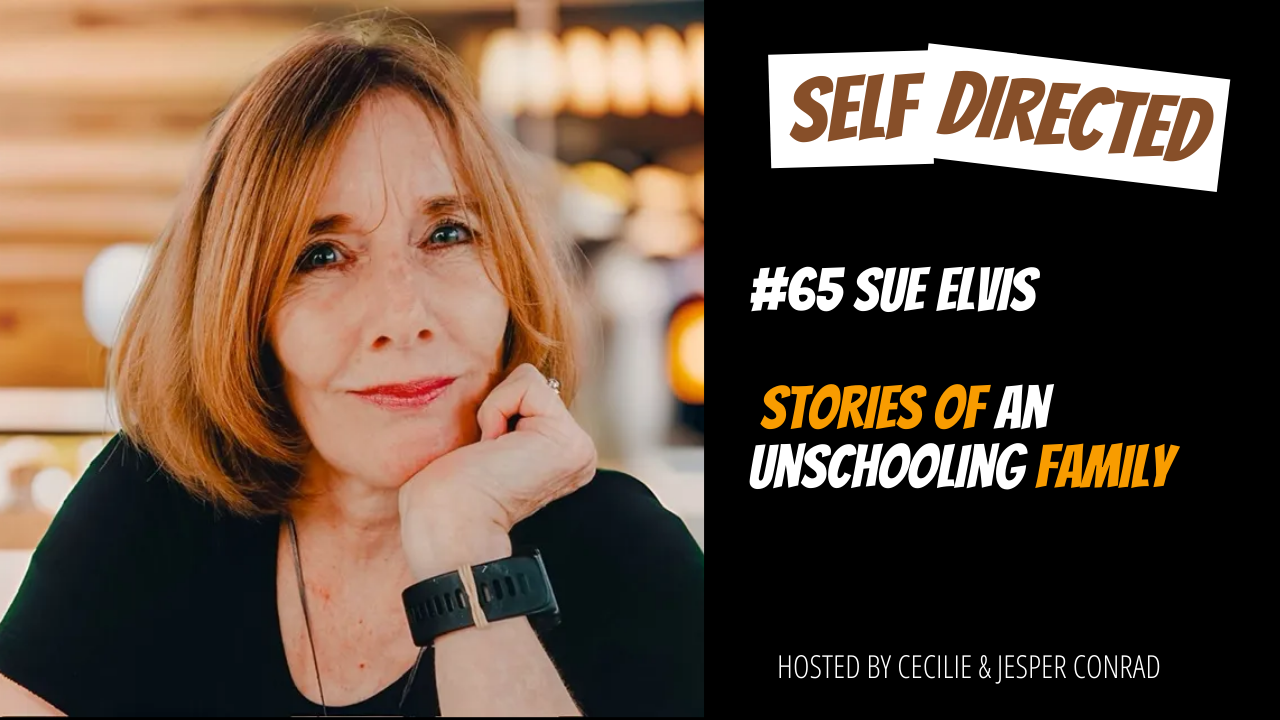
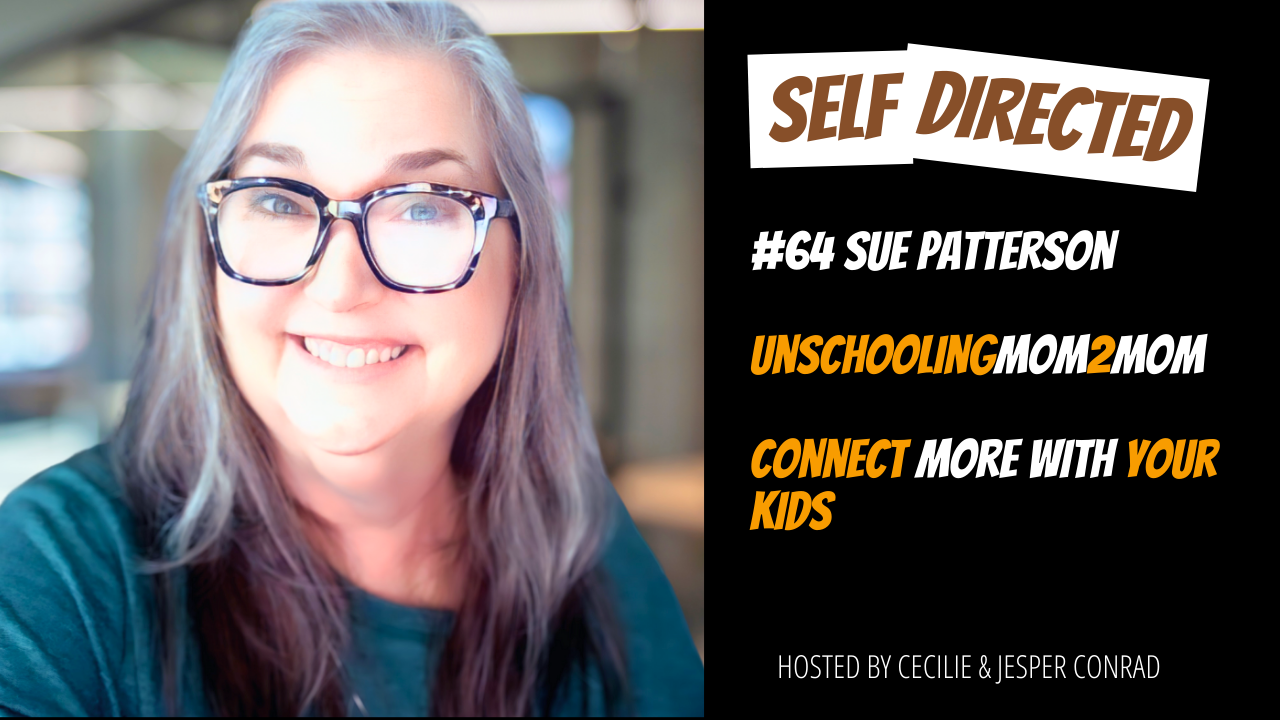
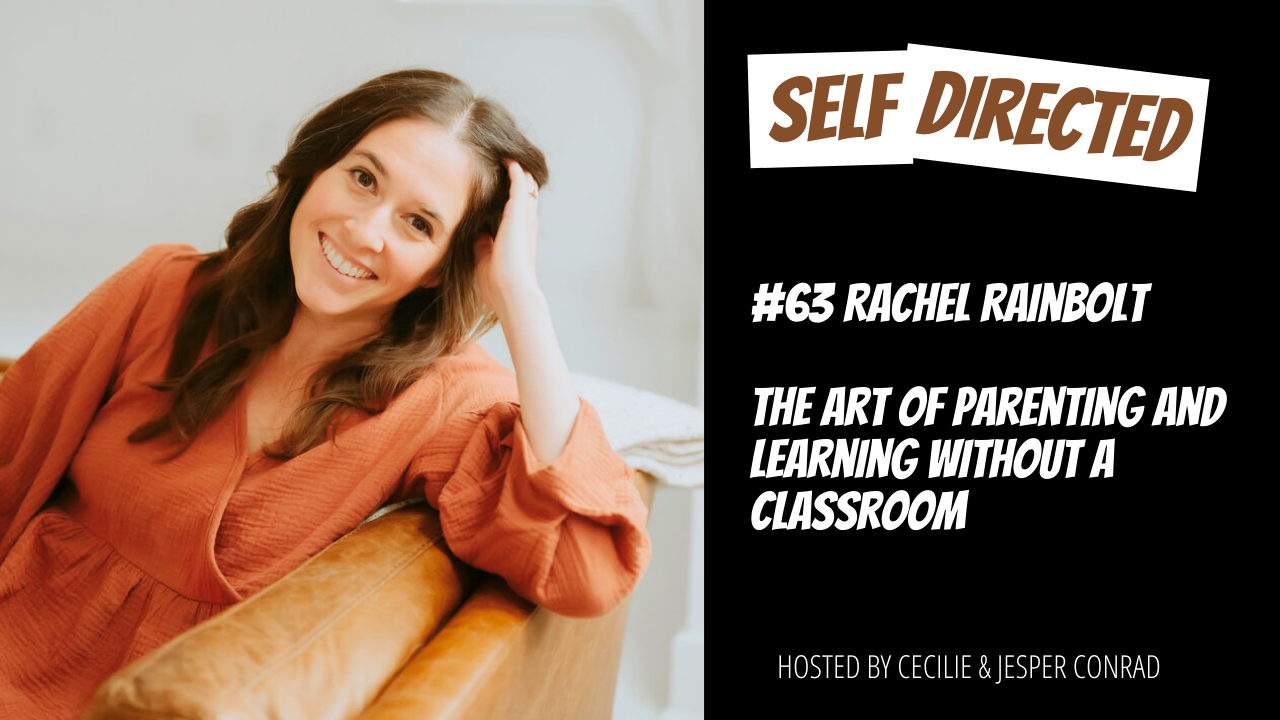
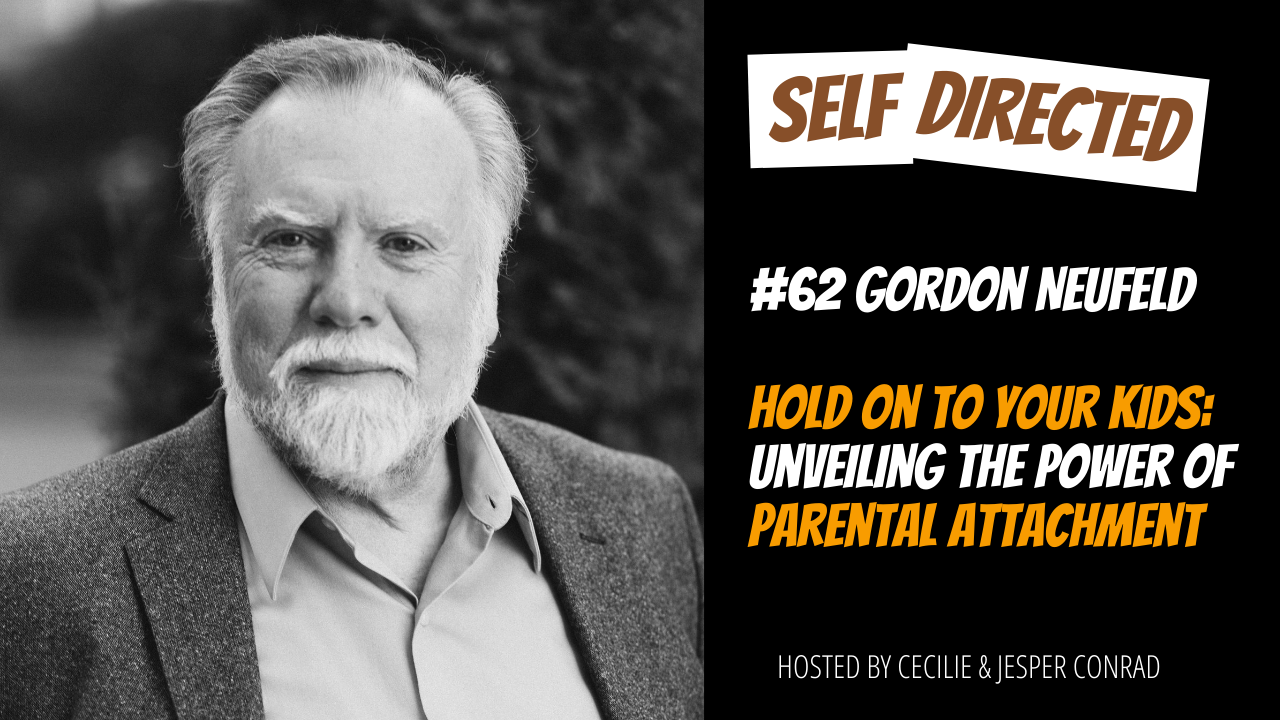
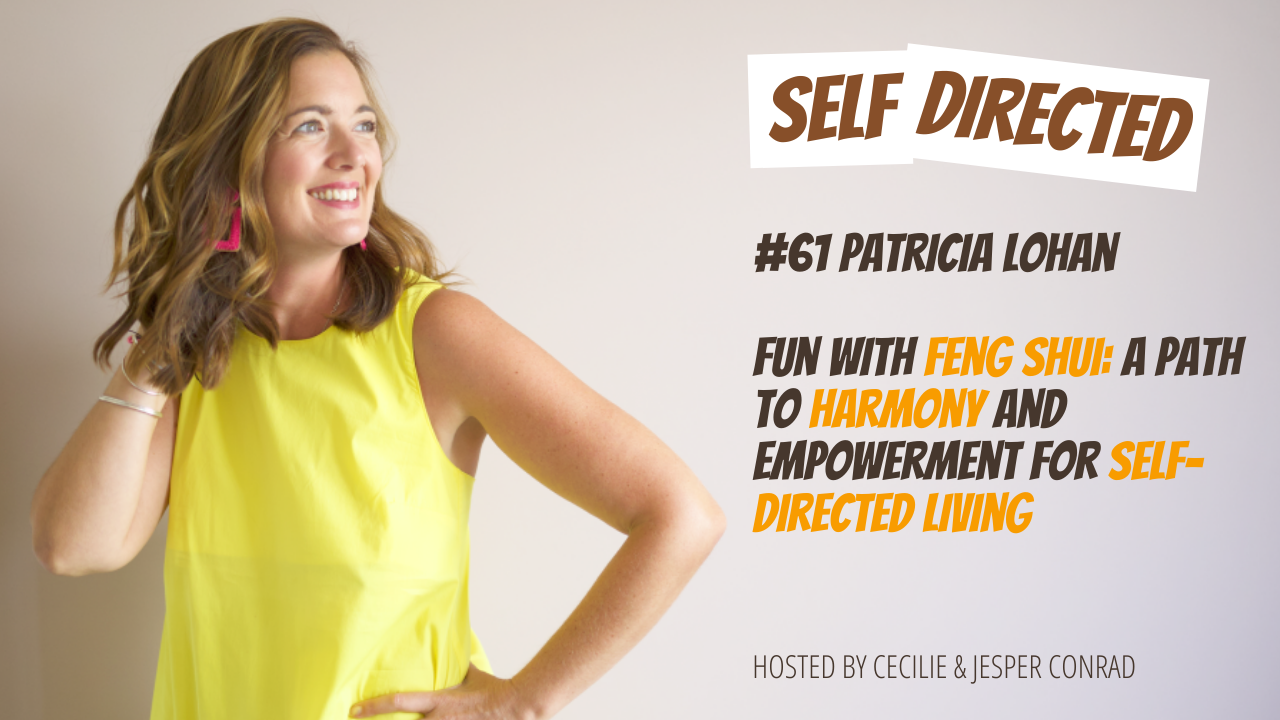
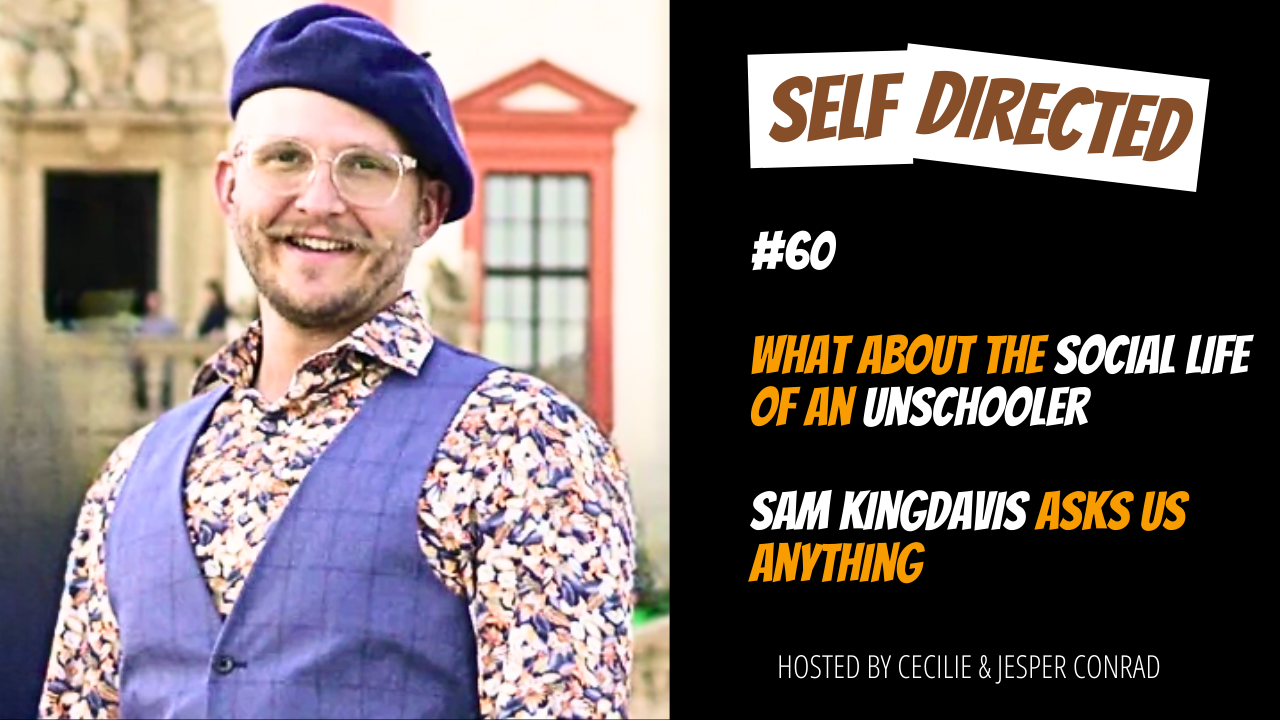
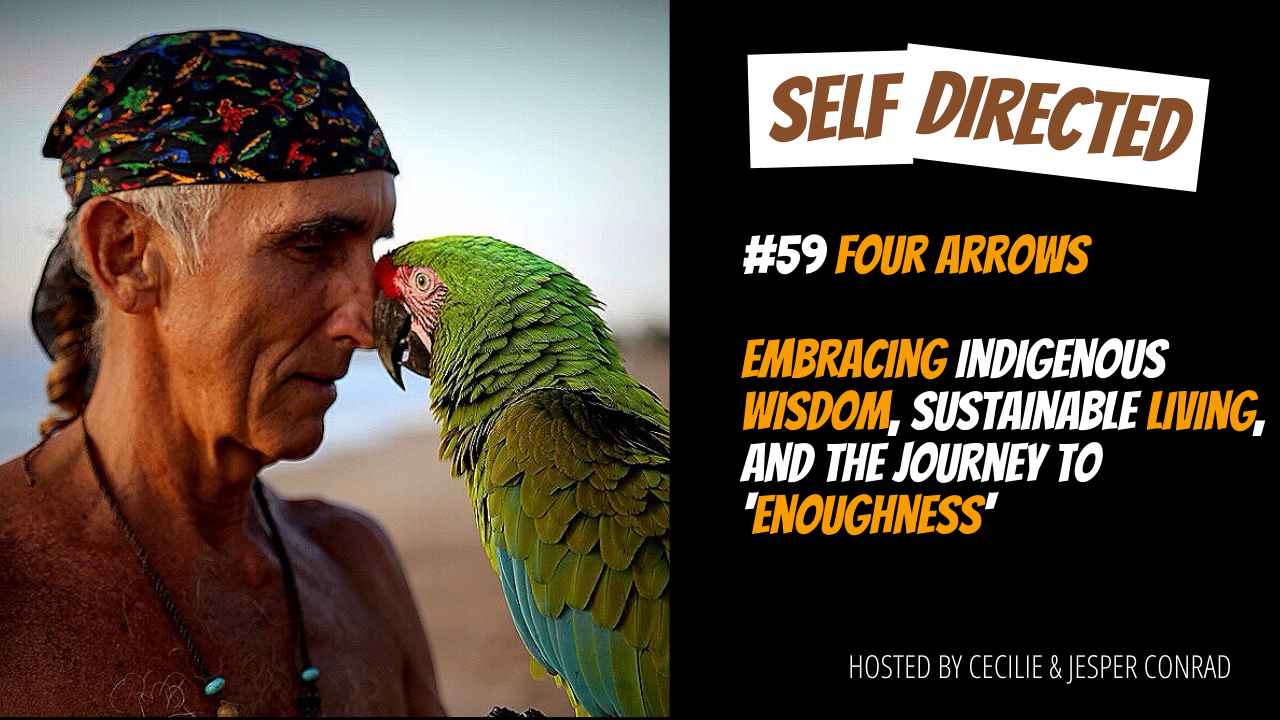
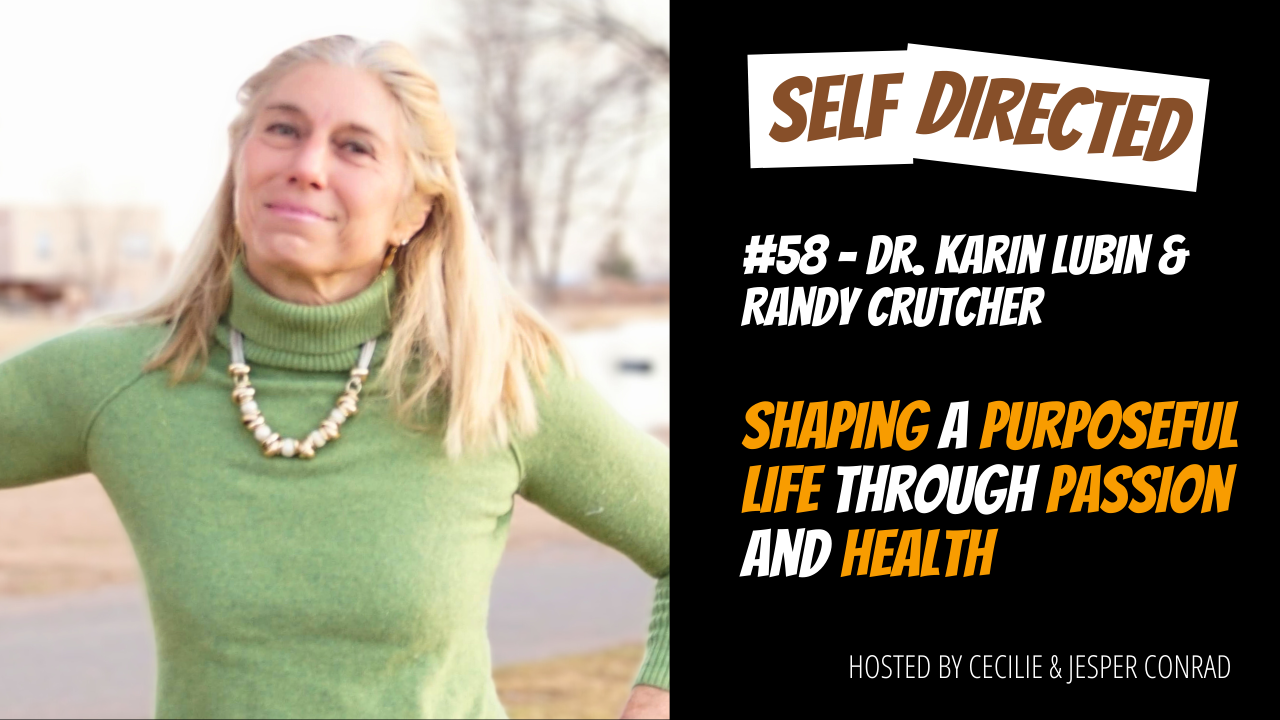
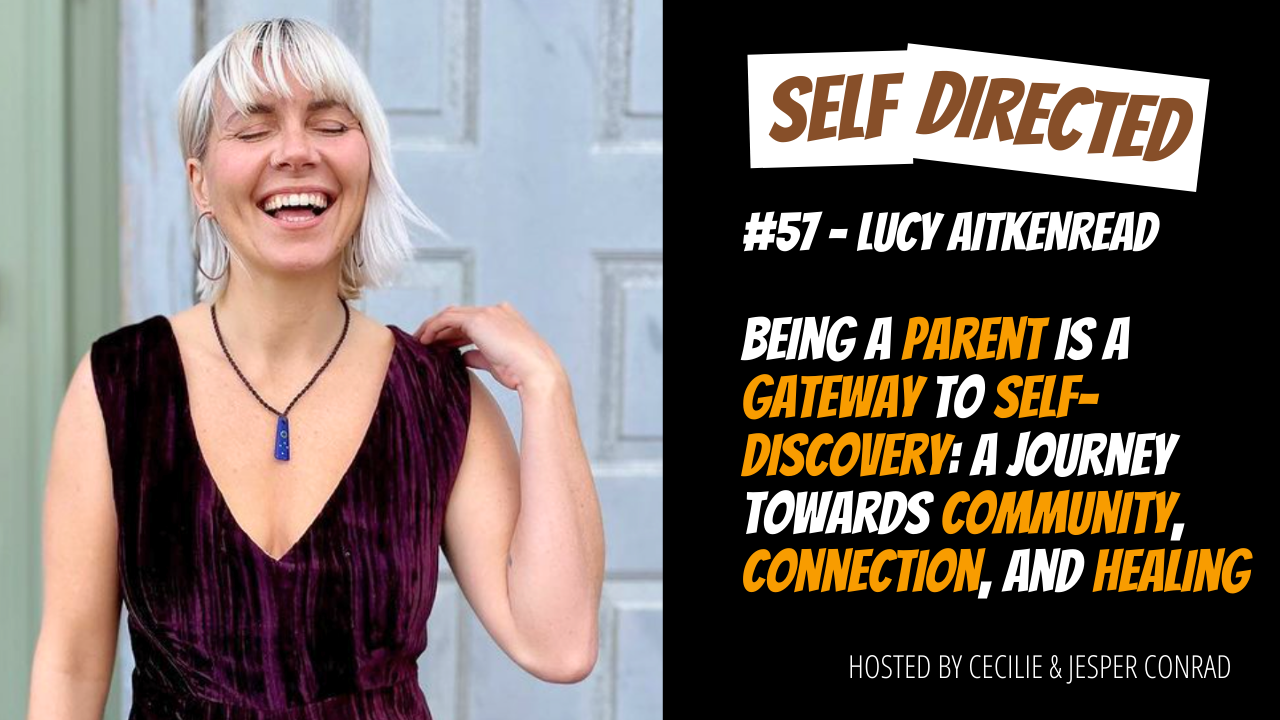
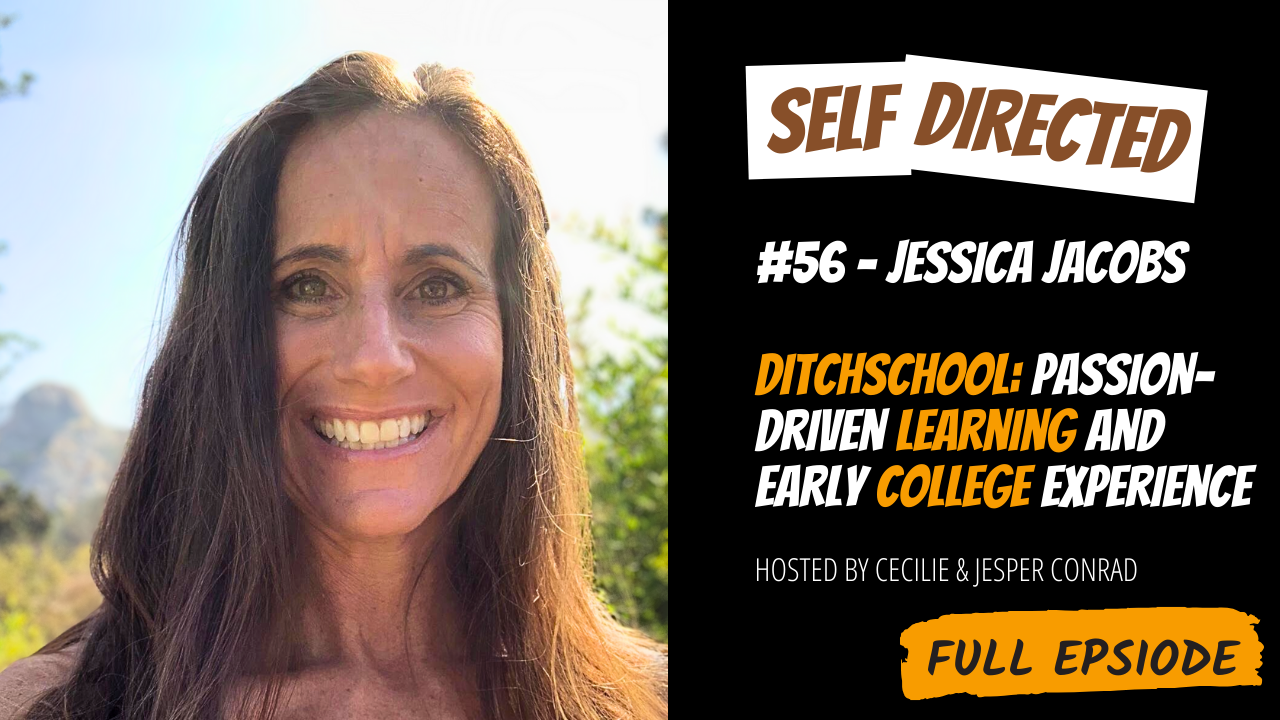
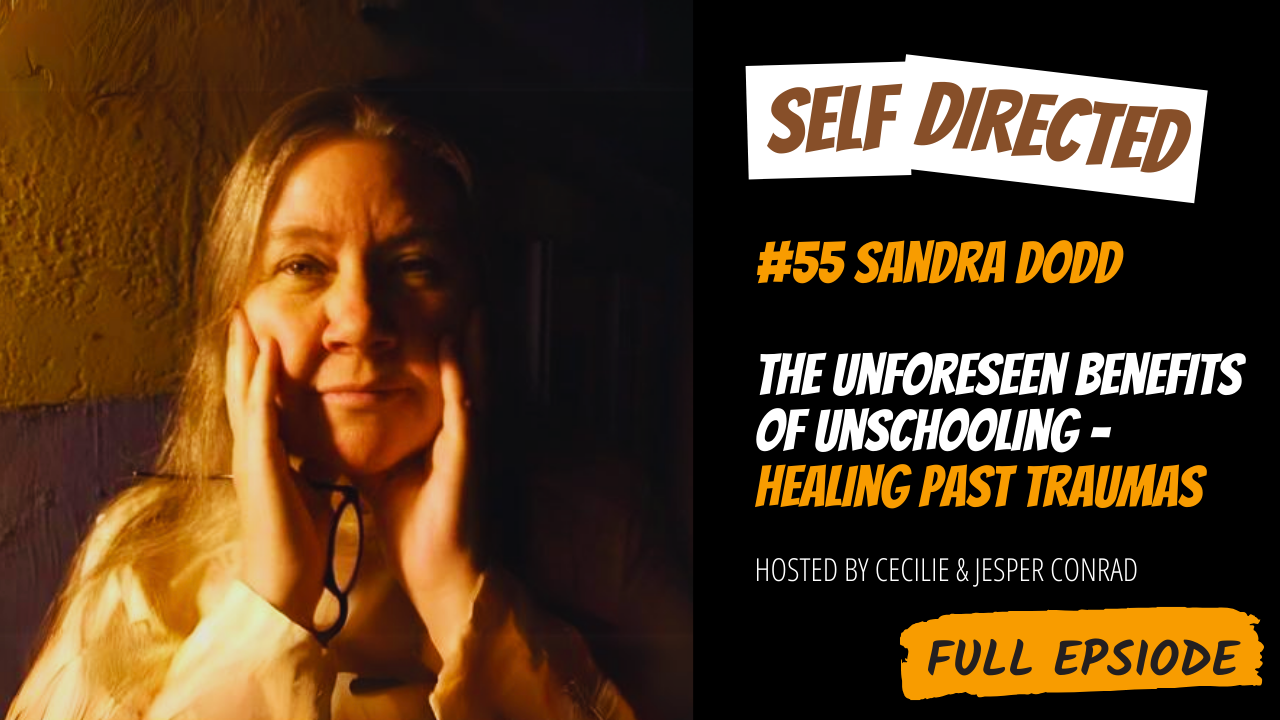
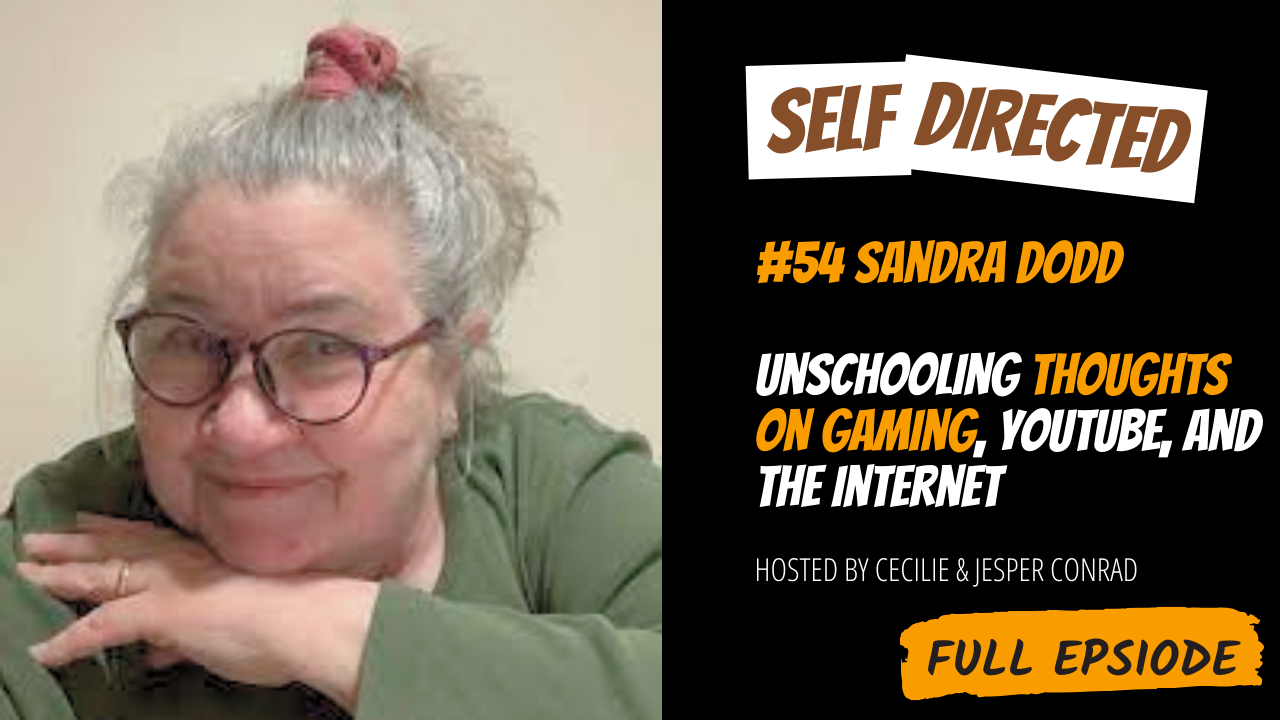



0 comments
Leave a comment
Please log in or register to post a comment